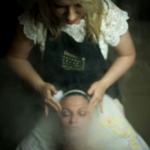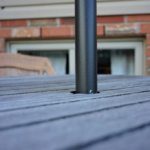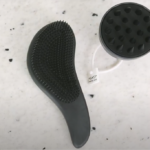Acne is a common skin condition that affects people of all ages and backgrounds. It can be frustrating and even embarrassing, but the good news is that with the right knowledge and treatment, you can effectively manage and prevent acne. In this comprehensive guide, we will delve into the causes, treatment options, and prevention strategies for acne.
What is Acne?
Acne, scientifically known as acne vulgaris, is a skin condition that occurs when hair follicles become clogged with oil and dead skin cells. It often manifests as pimples, blackheads, whiteheads, and in severe cases, cysts. Acne can appear on various parts of the body, but it is most common on the face, neck, chest, and back.
The Causes of Acne
Acne has several underlying causes, and understanding them is crucial to effectively managing the condition.
1. Excess Sebum Production
One of the primary factors contributing to acne is the overproduction of sebum, a type of oil produced by the skin’s sebaceous glands. When there is an excess of sebum, it can mix with dead skin cells and clog pores, leading to acne breakouts.
2. Hormonal Changes
Hormonal fluctuations, particularly during puberty, can trigger acne. Increased androgen levels can stimulate the sebaceous glands to produce more oil, exacerbating the condition.
3. Bacterial Infections
The presence of the bacterium Propionibacterium acnes on the skin can contribute to acne development. These bacteria thrive in clogged pores and can lead to inflammation and the formation of pimples.
4. Genetics
Family history can play a role in acne development. If your parents had acne, you may be more prone to it as well.
Also check: The Importance of Self-Care in Your Beauty Routine
Treating Acne
Effectively treating acne involves a combination of skincare practices, medications, and lifestyle changes.
1. Topical Treatments
- Benzoyl Peroxide: This over-the-counter treatment helps kill acne-causing bacteria and reduce inflammation.
- Salicylic Acid: Salicylic acid is effective at unclogging pores and preventing new acne lesions.
2. Prescription Medications
- Topical Retinoids: These medications help unclog pores and promote cell turnover.
- Oral Antibiotics: In severe cases, oral antibiotics may be prescribed to reduce inflammation and bacterial growth.
3. Lifestyle Changes
- Diet: A balanced diet rich in fruits and vegetables can support overall skin health.
- Hygiene: Gentle cleansing and avoiding harsh scrubbing can prevent further irritation.
- Stress Management: High stress levels can exacerbate acne, so stress reduction techniques are beneficial.
Preventing Acne
Prevention is often the best approach to managing acne in the long term.
1. Cleanse Regularly
Gentle cleansing with a mild, non-comedogenic cleanser can help remove excess oil and prevent clogged pores.
2. Avoid Touching Your Face
Touching your face with dirty hands can transfer bacteria and exacerbate acne. Avoid this habit.
3. Use Non-comedogenic Products
Choose skincare and makeup products labeled as “non-comedogenic” to prevent pore blockage.
4. Manage Stress
Stress reduction techniques such as yoga, meditation, or exercise can help keep acne in check.
5. Seek Professional Help
If acne persists despite home care, consult a dermatologist. They can provide tailored treatment options.
Also check: Understanding Your Skin Type
In Conclusion
Understanding acne is the first step towards effective management and prevention. By addressing the root causes, choosing appropriate treatments, and adopting a healthy lifestyle, you can achieve clear and healthy skin. Remember, consistency is key in the battle against acne. With the right approach, you can leave your skin troubles behind and confidently face the world.









